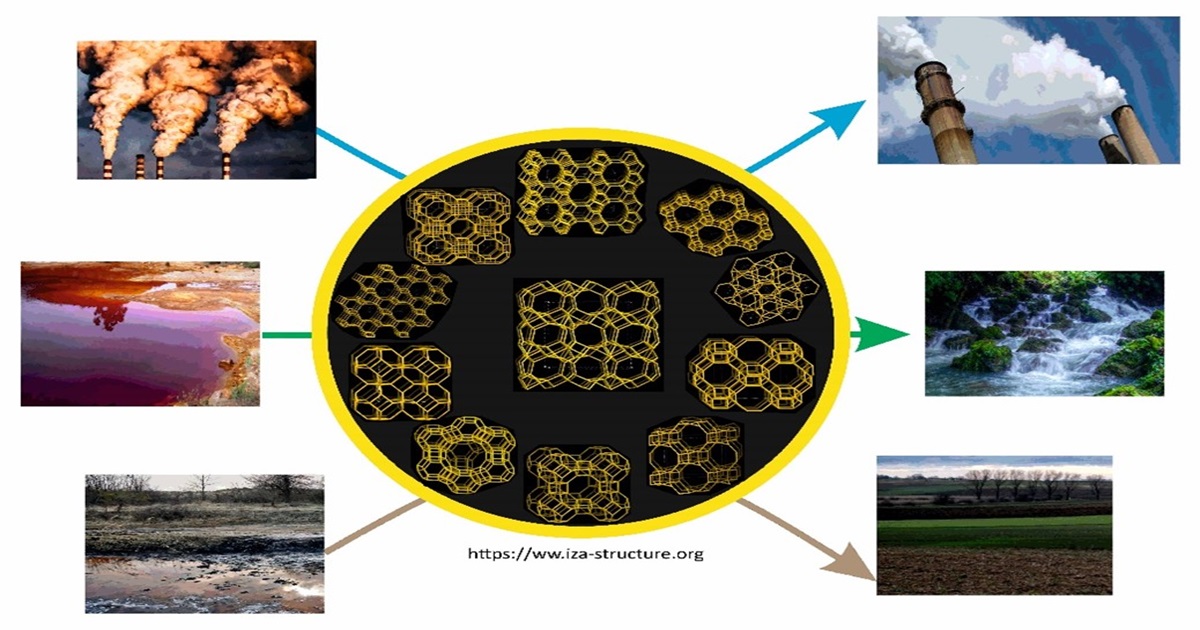- 3.2Impact Factor
- 6.4CiteScore
- 16 daysTime to First Decision
Sustainable Zeolites: Advances in Synthesis and Applications
This special issue belongs to the section “Porous Materials“.
Special Issue Information
Dear Colleagues,
We are pleased to invite you to contribute your research on zeolites, an exciting and relevant topic in the field of crystalline solid materials. These materials possess regular porous structures that confer unique properties, such as adsorption capabilities, molecular sieving, and ion exchange. The presence of voids or channels in their structure allows for the adsorption and diffusion of various ions and molecules, facilitating their extensive use in industrial applications such as water remediation, catalysis, detergent manufacturing, gas purification, membranes, and drying processes, among others.
However, the development of more sustainable synthesis processes has become a priority in zeolite research. The need to minimize natural resources consumption, reduce costs, and decrease the environmental impact of various processes has driven efforts towards finding cleaner and more eco-efficient methods for zeolite production.
Therefore, we invite you to share your research, advancements, and discoveries in this special edition, titled “Sustainable Zeolites: Advances in Synthesis and Applications”. We look forward to receiving contributions addressing aspects such as new synthesis methods, material characterization, innovative industrial applications, and performance and sustainability studies, among other relevant topics.
We hope you will join us in enriching the understanding of zeolites and their role in the development of more sustainable processes.
Dr. Isabel Padilla
Dr. Aurora López-Delgado
Dr. Maximina Romero
Guest Editors
Manuscript Submission Information
Manuscripts should be submitted online at www.mdpi.com by registering and logging in to this website. Once you are registered, click here to go to the submission form. Manuscripts can be submitted until the deadline. All submissions that pass pre-check are peer-reviewed. Accepted papers will be published continuously in the journal (as soon as accepted) and will be listed together on the special issue website. Research articles, review articles as well as short communications are invited. For planned papers, a title and short abstract (about 250 words) can be sent to the Editorial Office for assessment.
Submitted manuscripts should not have been published previously, nor be under consideration for publication elsewhere (except conference proceedings papers). All manuscripts are thoroughly refereed through a single-blind peer-review process. A guide for authors and other relevant information for submission of manuscripts is available on the Instructions for Authors page. Materials is an international peer-reviewed open access semimonthly journal published by MDPI.
Please visit the Instructions for Authors page before submitting a manuscript. The Article Processing Charge (APC) for publication in this open access journal is 2600 CHF (Swiss Francs). Submitted papers should be well formatted and use good English. Authors may use MDPI's English editing service prior to publication or during author revisions.
Keywords
- zeolites
- waste
- adsorption
- catalysis
- structure
- characterization
- recycling
- sustainability

Benefits of Publishing in a Special Issue
- Ease of navigation: Grouping papers by topic helps scholars navigate broad scope journals more efficiently.
- Greater discoverability: Special Issues support the reach and impact of scientific research. Articles in Special Issues are more discoverable and cited more frequently.
- Expansion of research network: Special Issues facilitate connections among authors, fostering scientific collaborations.
- External promotion: Articles in Special Issues are often promoted through the journal's social media, increasing their visibility.
- e-Book format: Special Issues with more than 10 articles can be published as dedicated e-books, ensuring wide and rapid dissemination.

